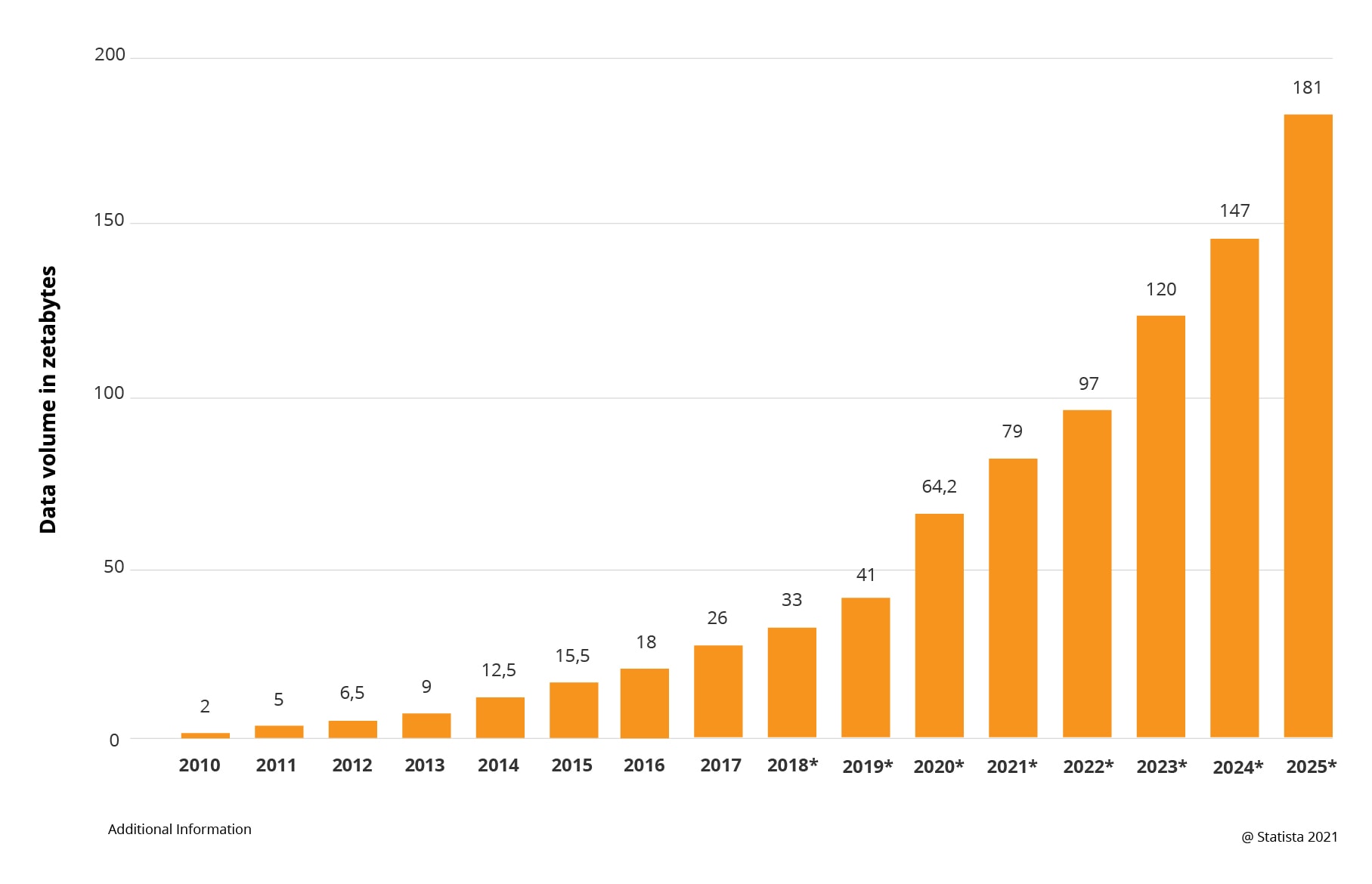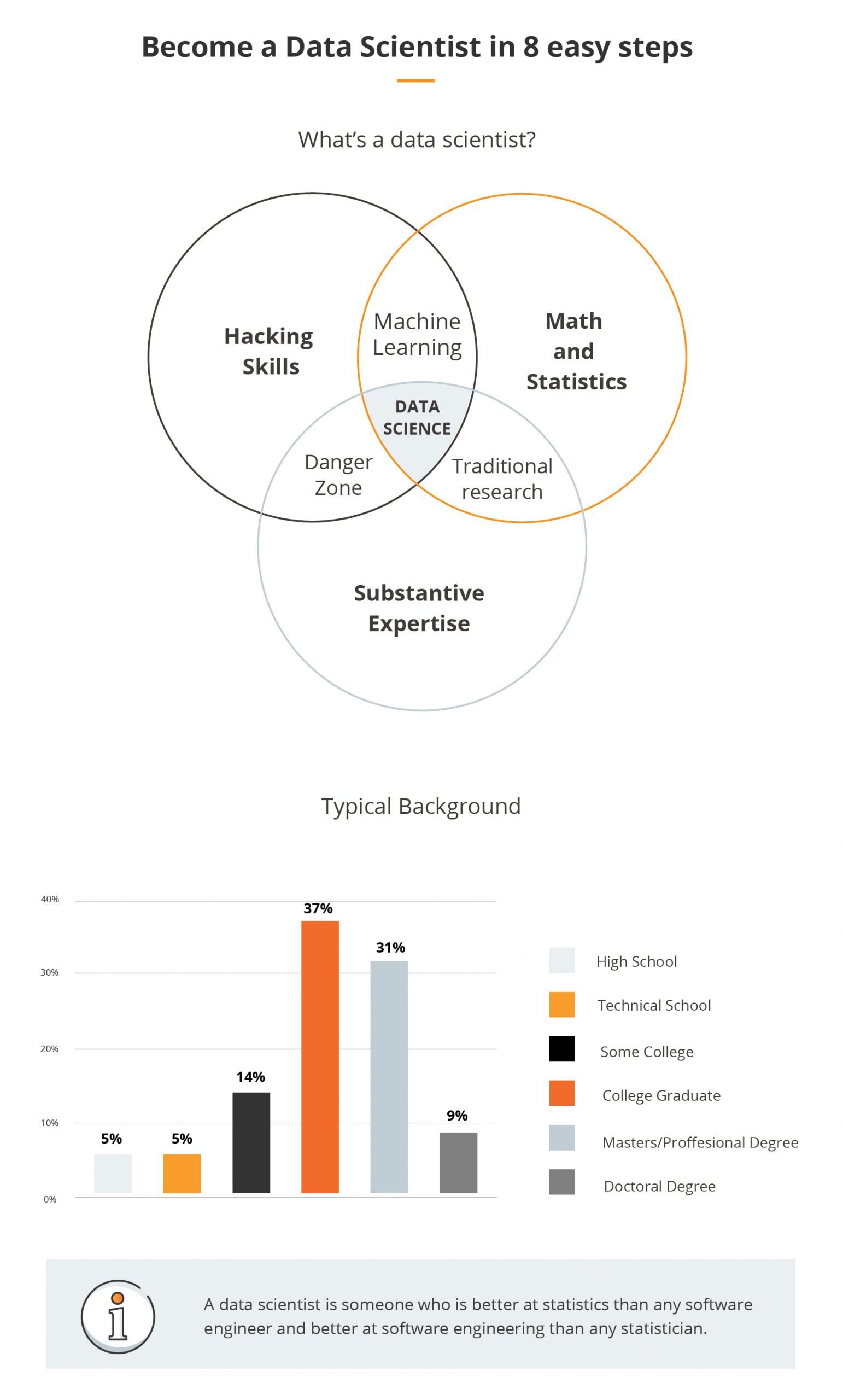
Making your data work for you: a short guide
The amount of data generated in the world is estimated to have reached 64 zettabytes (64,000,000,000,000,000,000,000!!) by the end of 2020. An amount so immense that it’s difficult to comprehend!
This is because data can appear in any form, whether it’s a single click on a link or an interaction with a product, not to mention a customer’s journey or proof of purchase. User behaviour, interests, and preferences, etc., are some more great sources of information as well.
Many companies have long been generating this type of data, but they have not been turning this into valuable, business-oriented insights. Why? Because they simply don’t realise what this data is good for.
So, why exactly do we need data?
We can use it to analyse the past, modify the present and design the future, allowing us to make the most of every single project or action.
- Historical analysis
Data can help us analyse the history of a company, which is the most common use case. Doing this allows us to see, for example, whether certain business undertakings were actually profitable, and how the company dealt with emerging problems. - Cost-effective operations
Data also helps us identify different types of user behavior, so that we can analyse them to discover user needs and intentions. This, in turn, can lead to:- an increase in sales – by simplifying the purchasing process and improving access to desirable products,
- a boost in efficiency – by identifying and eliminating bottlenecks in the process,
- cost savings – by optimising operation processes, such as logistics or decision-making,
- more productive marketing actions – by identifying user needs, creating more accurate buyer personae and finding the right communication channels to interact with target audiences,
- improved scalability – by answering precisely to user needs with new products or services, or opening new office branches exactly where the target groups of customers live, work or commute.
- Plans and predictions
Data contains a shadow of the future. This means that it makes it possible for us to predict trends and behaviours, and then estimate the profitability and risks associated with certain actions, so that we may adjust our tactics, strategies and budgets accordingly. For example, based on previous experiences and the latest trends, you may decide to target your new advertisement campaign locally instead of globally, so that you can be more precise in your marketing message and maximise your conversion rates.
However, despite how impressive this may all sound, some business owners might still be wondering whether analysing data is something that they really need to do in order to help their companies succeed. If you’re one of these people… just give me a minute to ease your doubts.
Data analysis – is it right for my business?
Analysing your company is a lot like engaging in meaningful self-reflection. If you want to make progress in your self-development, you need to look deep within your soul and your mind to identify your strongest and weakest points, and then choose the path that you want to follow.
This is why every company that struggles to achieve and maintain a competitive advantage should not be asking whether they need data analysis, but rather how to use their data in the most effective way possible (because the fact is that holding onto and processing a large amount of data can be both time and cost-consuming).
To answer the big question of whether data analysis is right for your business, you need to first answer a few smaller questions:
- Do you currently bet on experiments that are aiming to help your company develop, without relying on facts?
- Do you act randomly, without drawing conclusions from previous experiences?
- Do you generate just enough relevant data that may be turned into valuable insights? If so, how do you use this data? If not, how can you change this?
- Are you able to keep and effectively manage the amount of data that you create?
- Do you know how to utilise this data and do you have certain types of data experts onboard?
Data experts – who do you need, exactly?
- Data Engineers
These are experts (either working on-site or via the cloud), who effectively consolidate data from different areas of your business or project activities. They then fuel the system with all of this data and also prepare it all for further processing. - BI Developers
BI Developers are also called Data Analysts. They turn data into information, and information – into a business value. They basically share meaningful sets of data with the right groups of people, so that they receive sensible and structured information. - Data Scientists
These experts in data try to use the most innovative and effective analytical methodologies in order to meet business needs and objectives. Sometimes their competencies overlap with the competencies of BI Developers. However, they are more scientifically oriented and base their work on the latest technological discoveries in the areas of Machine Learning, Deep Learning, Artificial Intelligence, Natural Language Processing, and Natural Language Generation, etc. Having data scientists on board allows a company to make more magic with their data than ever before.
And yes – we know that working with highly-qualified data experts doesn’t come cheap, but it definitely pays off, simultaneously generating considerable amounts of both profit and savings.
Wrap-up
Investing in data analysis is a serious and usually costly undertaking – there’s no arguing with that. But the benefits and revenue that it brings (sometimes almost immediately!) greatly outweigh the costs. The only catch is that you need to hire the right specialists to work with you – data experts who are both experienced and knowledgeable, and whom you can rely on.
They will be able to provide you with a detailed view of your organisation and offer actionable insights. And they should be able to do this consistently, not just once so that you are able to constantly monitor what’s happening in every area of your business, project and campaign, and adjust your next course of action as needed.
We, at Future Processing, can definitely help with this. Just let us know if you’d like to learn more, and we will tell you exactly how you can make your data work for you!







